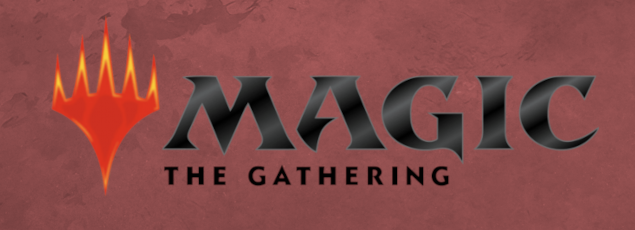
Over the lastcouple of articles on the rot of Magic: The Gathering, we've chomped on big topics that we can sink our teeth into. Imbalances and randomisation are complicated enough that they each needed an essay by themselves. But there are many more issues with the game we've not gotten to, issues that can summarised faster but that don't have a uniting theme apart from invoking a feeling of helplessness. So, like an excitable flea, we're going to jump around a lot here. We'll sap the sweet blood of subjects like running out of options, stalemates, leaden pacing, and fractured player matching. But before all that, we're going to start with:
No Dodging, No Predicting
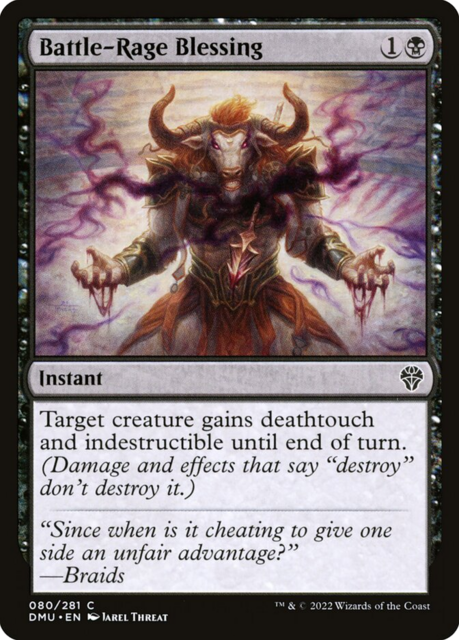
There's a general rule in game design that if the player is at significant risk of some hazard, they should be able to foresee it and nullify or reduce its effects. In Satelite Reign, I can see when forces surround my soldiers, and retreat, retaliate, or reposition my troops for better defence. In Splatoon, if there is a player who has clocked me in their sights and can eliminate me, I can view them and their incoming fire. I can then take cover, dodge, or counterfire. One reason a boatload of video games take place over a space is that spaces allow us to recognise dangerous entities approaching, give us a clear idea of their relative position to us, and let us move from their path or prepare to engage. It's the same whether we're playing a shooter, fighting game, turn-based strategy game, or RTS. And even if a game isn't spatial, there are other ways of sounding the alarm for the player, like falling revenue in a business management sim or an environmental puzzle game where you can work out whether a solution will fail just by looking at the room in front of you. In these examples, we could rebalance our books, or plan a different solution, respectively.
The instrumentality of visible, avoidable failure comes into sharp focus when we imagine the alternative. What if there was an enemy in Ikaruga that shot invisible bullets? What if there was a weapon in Unreal Tournament that made you drop dead regardless of your health or your position relative to it? The presence of even one of these bad apples might be enough to spoil these games entirely. Magic: The Gathering is loaded to the gills with invisible bullets and drop-dead guns. You can almost never see the contents of your opponent's deck or hand and usually can't guard against cards' effects. These debilitations stack with the power (sometimes excessive power) of cards and the random drawing to make many of the opponent's actions feel like cheating.
Sometimes, there are tells that players might be about to whip out a card that could ruin your day, either via their behaviour or your knowledge of their deck. For example, if they have some extra mana on tap, and they're attacking you with a creature that would be demolished if you blocked it, chances are they have a card that will buff their creature (e.g. Giant Growth or Battle-Rage Blessing) or debuff one of yours (e.g. Cruel Finality or Unholy Heat). So, if you block their charger, your defender will go down in flames. Or, imagine that the opponent has a couple of untapped land, it's your turn, and they've been repeatedly playing instantsthatstun your creatures. There's a good chance that if you summon another fighter, they'll stun that newcomer too.
But without red flags like mana count or weak creatures attacking, there's no way to predict if your enemy will play a card that knocks seven bells out of you. Magic has the cowardice to punch you in the back of the head and the arrogance to ask why you didn't dodge out of the way. And if you think your opponent is gearing up for such a swipe, unless you have a deck that counterspells or instantly reinforces creatures, there's probably nothing you can do about their offences anyway. You can also catch their fist in mid-air only to have them kick you in the stomach. Unleash a creature strong enough to stand up to theirs? It might be stolen and put under your opponent's control. Cast a curse that might take out their prize fighter? Counterspelled. Attack from a strong position? One of their defenders gets buffed until the end of the turn. Got a great army lined up on the field? All destroyed with one card.
We could say that Magic is balanced because you have the opportunity to trigger surprise traps, too, but this is the fallacy of trying to grade gameplay purely on "balance". Just because you can give as good as you get doesn't make it feel any less unfair when you're targeted with a devastating spell with no recourse. In fact, when your creatures are trivially wiped from the play area or the damage you try to cause is nullified, you can start to wonder what the point is of playing creatures or damage spells in the first place.

A helpful takeaway from Magic's blindsiding is that, from a player perspective, being met with unforeseeable events created through other players' actions and being met with random events is effectively the same thing. The changes in the game state are unpredictable in either circumstance, no matter who or what they were initiated by. And so, our lack of foreknowledge about player behaviour in Magic leads to many of the pluses and minuses that the randomness did. Yes, it introduces variety and twists, but it also creates a strategy system where you can plan for one scenario and end up with another through no fault of your own. And if you do have the cards to quench an enemy fire, you don't know whether you'll draw them.
To be fair, Magic provides some respite from unpredictability in its best-of-three matches. In this format, you have more time to scan the contents of your opponent's library. Players are also often permitted a "sideboard": a biscuit tin of cards that they can swap into their deck between matches. Combatants can modify their loadouts in response to the spells the opponent is playing. But this match structure is not that popular outside of tournaments and leaves you competing against the same type of player and deck for a long time.
Extended competition against the same player is especially frustrating if it turns out the opponent is better than you or better equipped than you. And while the sideboard is small enough that it doesn't allow a player to cycle out most of their deck, it's still another pocket in which an opponent can store mystery cards to surprise you with. Consider that one technique an opponent can use is to predict how you will change your deck to combat the cards you just played against and modify their deck to fight the kind of armoury they think you'll construct. You could play best-of-X without the sideboard, but that approach is even less popular because the sideboard exists to prevent repetition and increase agency in matches.
Running Out of Options Isn't Fun
It's not, and it's pretty easy for it to happen. We've already studied how you can be paralysed by unlucky draws, but there are plenty of other ropes with which the game can bind your hands. In most formats, players start with a maximum of seven cards. Magic is designed so that if you're drawing cards you can play, then, without intervention, you'll be holding few to no cards by the mid-game. By default, you draw one card a turn, but you're allowed to play one land a turn and, on almost all turns, can play one or more nonlands. So, on the average turn, you see one spell enter your hand and at least two leave. You're operating at a loss.
By themselves, those economics aren't troublesome. I think it engages the player's ingenuity to give them a deficit of agents and then a lot of ways to keep new tools coming in or options so that they don't have to rely as much on drawing. The player may, for example, have permanents that can effectively activate a sorcery each turn so they don't have to draw sorceries from the deck (e.g. Hall of Oracles or Satsuki, the Living Lore), or they may be able to resurrect the dead from the graveyard (e.g. Phyrexian Reclamation or Lukka, Wayward Bonder). Some cards declare that you can draw more cards outright (e.g. Accelerate or Thirst for Discovery), while others spawn more beasts (e.g. Myrel, Shield of Argive or Imperial Oath). But your opponent can suddenly blast your army or support cards apart or otherwise render them inert, meaning you have to replace them. They can also play cards that force you to discard cards (e.g. Bladecoil Serpent or Invasion of Eldraine). Or you may not draw the support cards you need to keep useful staples on the field and in your hand.
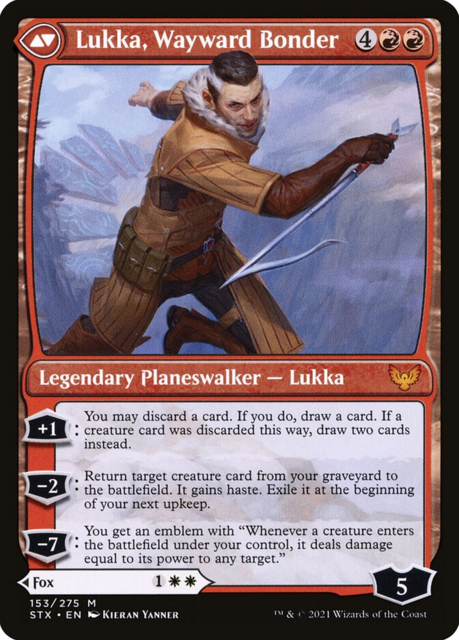
Any of these crises can lead you to dead ends where you can't act on your turn or are just making the single correct move every time. It causes your participation in the game to feel perfunctory. You stop confronting interesting strategic decisions because, for a decision to be difficult, you need multiple options, some of which are advantageous and some of which put you at a loss. Some amount of inaccessibility to standard powers is normal for a game. You might wait to respawn in a multiplayer skirmish or have some scouts ambushed in an RTS, requiring you to train up new ones. However, in that RTS scenario, you usually have other units you can switch to, or at least, the power to construct more. In a shooter, you will often respawn in a few seconds, and with all the implements you might need.
In a decent game, complete immobilisation is momentary at worst, and during regular play, the fundamental suite of actions persists. It has to, because each mechanic of a game is carefully chosen to perform some essential job, so to lop off those mechanics is to break the game. Magic can be tremendously disempowering because it will leave you without fundamental abilities for an extended period, abilities like attacking, blocking, or being able to reload your hand. It's as if you could have your power to erect buildings removed in Frostpunk or have all your bats snapped in World Series Baseball.
The Pacing Graveyard
A limitation of all turn-based PvP play is that you're going to spend a certain amount of time out of control while your opponent makes their moves. In some games, rounds are short, meaning that even with turn-based competition, you've not got too much time before your next action. However, the shorter the turns, the less complex the system manipulation a player can perform per turn, making the game simple. That simplicity is fine for some titles, but other games want more substance per turn, which is why you have a TCG like Magic, where every turn has an upkeep phase, a draw phase, a pre-combat main phase, a combat phase, a post-combat main phase, and an end phase. Each allows for different modes of engagement with the systems and poses challenging questions about how to time moves. The trade-off is that each match has extensive stretches of downtime just by virtue of giving opponents such long turns, so it can't afford to do anything that would add extra seconds to each turn.
Magic does mitigate the periodic lack of player agency with a couple of controls. Firstly, there are actions you can take during an opponent's turn. You can play Flash or Instant cards, and if your opponent attacks, you get to assign your blockers. Note that the moment at which you administer blocks comes about halfway through the opponent's turn, minimising the time between periods in which you're making choices. If your opponent does not attack on their turn, you won't assign blockers. However, if they choose not to, their turn is shorter, and control returns to you faster anyway.
The other bone the game throws us is its parsimoniousness with the mechanics per card. The more time that players spend checking and executing the rules on each surface, the longer each turn takes, and the lower the density of average meaningful player choices per minute. Because Magic spreads powers over lots of different cards as opposed to putting many powers on each, we spend less time reading and interpreting each spell. But turns can be stretched out if we have a glut of cards to process rules for or if there are exceptionally complex cards on the table. For example, this is the text from Agatha's Soul Cauldron:
"You may spend mana as though it were mana of any color to activate abilities of creatures you control.
Creatures you control with +1/+1 counters on them have all activated abilities of all creature cards exiled with Agatha's Soul Cauldron.
Exile target card from a graveyard. When a creature card is exiled this way, put a +1/+1 counter on target creature you control."
And this is the text from Quintorius, Loremaster:
"Vigilance
At the beginning of your end step, exile target noncreature, nonland card from your graveyard. Create a 3/2 red and white Spirit creature token.
(1)(R)(W), Sacrifice a Spirit: Choose target card exiled with Quintorius. You may cast that card this turn without paying its mana cost. If that spell would be put into a graveyard, put it on the bottom of its owner's library instead."
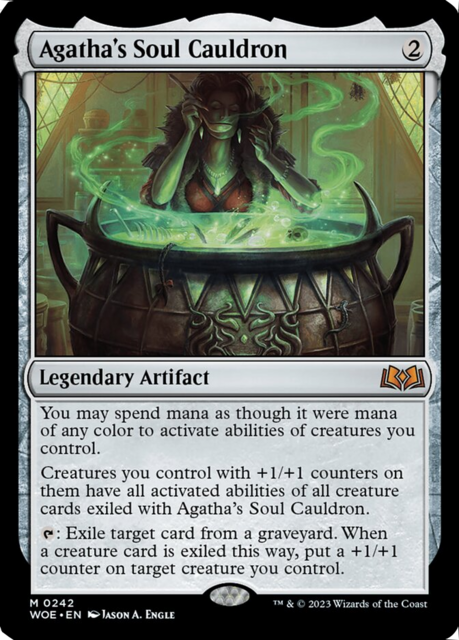
It can also take a long time to process your cards if they have rules that affect a lot of entities, especially if those effects repeat each turn. Supports that rely on creating and powering up a lot of low-end creature tokens can be subject to this, including rat decks, goblin decks, and many white and white/green decks. With a certain type of library, you could easily get yourself into a bind where you have twelve creatures on the field that you must calculate combat damage for every time they attack or are attacked. You could then have generatorsthat create one more creature token each turn and puta +1/+1 counter on all your creatures. All that admin eats up the clock.
But isn't this a problem that computers could solve? The premise of a video game is that it runs on a processor that can carry out operations millions of times faster than a person. But no, Magic bungles this too. The TCG's main online counterpart, Magic: The Gathering Arena, is lousy with players who take every opportunity to hesitate, rethink, and wander away from the keyboard. It's areallycommoncomplaint that with many users, getting them to click through even the simplest interactions is like pulling teeth. They will have one card in their hand and still take an eternity to mull over their options. You'll just need them to click "Okay" on some effect you've triggered, and they'll sit and stew for half a minute.
I'm not angry at newbies who need time to read and digest. There's a lot to learn if you've just stepped onto the scene, but I've been around the block a few times; the reason my opponents are slow is not because MTG: Arena is matching me against other rookies. I also understand that some disabilities affect the speed with which players can parse information and input actions. But the number of slow players on Arena is multitudes more than that tiny sliver of the population could ever account for. I'm also sympathetic that sometimes something happens in the offline world that you need to get up and take care of: you have to use the bathroom, or your cat got ahold of your debit card again. But this isn't a sometimes problem. By and large, the hesitating players aren't people who have language processing disorders or have spilt a whole burrito on their laptop; they're players who are wasting your time because they don't care about it.
I know that when reviewing games, it's usual to evaluate only the boxed product and not the community, but in any PvP environment, the people you interact with have a monumental effect on the experience. And in Magic, too many people let you waste away in long queues as they fiddle with the forms. MTG: Arena is a fantasy DMV.
A few different factors motivate sluggishness in keyboard jockeys:
- With the anonymity of the internet and the lack of face-to-face communication that comes with a public setting, there's not the social pressure to be courteous towards other players.
- A lot of opponents focus on an activity outside of the game; this is the price of living in a world with second monitors.
- Some players turn on "Full Control": a mode where you must manually "accept" every move because, for esoteric reasons, this helps disguise whether you have certain spells in your hand and lets you micromanage your mana. But if a player is distracted from the game and has all these extra prompts to click through, they naturally arrest its pacing.
- The game has crossplay between PC and mobile, and the mobile client doesn't have as responsive an interface.
- Some trolls are aware that they can take advantage of the lenient turn timers to try and bore an opponent into submission. You are rewarded for making the game unenjoyable to play, and it happens so frequently that it has a name: "roping".
- You can get into a habit of taking your attention off of the game because you're used to killing time while opponents take their turns, especially when they prevaricate.

You might think that given that you and your opponent have the same phases to work through, you'll go 50% of a match out of action, but you can spend a lot more time than that inactive because you could be taking your turns much faster than the opponent. So, again, you can languish for long periods of play, even the majority of the match, knowing that you might as well not be playing at all. The thought creeps in: "If I'm not playing for 70% of this match, I wouldn't have to go that much further to not play for 100% of it".
You could say that Wizards of the Coast must stop permitting players to drag out games like this. Every platform holder has a responsibility to moderate their users. The problem is, if you did reduce the turn times in MTG: A, you would be excluding those players with limited mobility and slower visual or language parsing who are already shut out of countless other leisures. But Wizards could at least let players opt into being given longer turn timers with the statement that it is intended to be an accessibility feature.
Even when players move with some alacrity, matches can fail to evolve not because turns are taking a long time but because they're not meaningfully changing the game state. Back in my first MTG article, I said that its games tend to resolve firmly and quickly because one player can enter a feedback loop of power. I stand by that, but there are matches that don't wrap up curtly. Long playtimes don't hamper your enjoyment if you and your opponent are trading lots of different punches to counter each other, but if you each remain unable to attack and are just passing your turn or only making baby steps towards victory each time, the game stagnates.
Cold wars can arise in the following circumstances:
- If you and your enemy are growing your offensive and defensive power on the field a roughly equal amount each turn.
- If neither of you draw playable cards for a while.
- If one player doesn't have the power to fend off an opposing army but does have one problem creature, like a Deathtouch monster, that the opponent can't risk attacking. In this scenario, the attacking player may end up only able to care about the draw step on their turn, as it's the only phase that may give them the tweezers that pulls their opponent's splinter from their finger.
Moderation
Speaking of Wizards' responsibility for players, moderation is an afterthought in Magic: Arena. The company can post all the bromides about inclusion they like; the Arena client doesn't let you block or report players. You can't even flag them from the "Report a Player" page on the Magic: Arena support site. If you want to hold other community members accountable, the unintuitive technique you need to learn is selecting "Submit a Request" on that site, logging in on your browser (even if you're already logged into Arena), and then filling out a form. While the form asks for visual evidence of misconduct, the game has no native screenshot feature. Every time a platform operator adds another step between users and reporting features, they're reducing the number of players who are going to do anything about the assholes.
Matchmaking
In my experience, appropriate matchmaking is one more core competency Magic: Arena has no conception of. I don't have anything insightful to say about that, but it is frustrating to go whole sessions where I only find players above my skill level, even if I have other runs where I'm cleaning house.
Mitigation

One big omission I've made up until now is the deck construction techniques that can shield you from some of Magic's most irritating flaws. I wasn't aiming to be harsh on the game; it's just less confusing for you, the reader, if I can talk about all these mitigation functions at once instead of dipping in and out of this concept. There's no incantation to make your opponent act promptly or to improve MTG: A's matchmaking, and we've already learned how you might armour against the most extreme of overpowered cards, but there are other life preservers we can deploy.
If you're driven up the wall by the randomness of the deck, there are brokers we can use to seek specific assets from it, like Evolving Wilds or Altar of Bone. We can also view and rearrange cards on the top of the deck by scrying and surveilling, say through Consider or Alibou, Ancient Witness. There's a plethora of spells that let us draw bumper crops of cards, like Silver Scrutiny or Big Score; they increase our chances of finding some magic bullet. There is a hand limit of seven, but there are cards that remove that limit, such as Triskaidekaphile or Anvil of Bogardan. You could also untap snoozing creatures or remove disabling enchantments. If we want to dodge enemy spells, there are counters, e.g. Ice Out or Remand. If we want to be able to predict what the enemy will play, we can view their hands via spyglasses like Duress or Agonizing Remorse. You can also try to speed up the game with fewer rules-heavy cards and by playing nimble strikers, such as Rabbit Battery or Mournwillow.
But your reliance on any type of card to unboring the game means that whether you're engaged is somewhat down to our old enemy, randomness. Some of these mechanisms, like scrying, also still have you drawing from a shuffled deck. And you can't build a deck that accounts for everything at once. In isolation, the point that you can sometimes view your opponent's hand or search your library for a card is correct. Still, there's no way to fashion a deck that consistently exiles creatures and sees the enemy hand and counterspells and removes auras and draws plenty of cards and counteracts every ability an enemy could possibly have.
In other words, all decks solve some problems, but no deck solves all problems. This concept applies as much to outplaying opponents as it does to avoiding Magic's pits of despair. A healing deck may perform well against an opponent who aims to directly damage you with spells, but not one who uses poison counters because you can't remove poison counters like you can remove damage. A deck that gives you a lot of options by allowing you to draw multiple cards per turn could hold its own against an opponent using a multi-pronged strategy. Yet, if your opponent has a rush deck and you're building a hand when you should be mounting a defence, your prospects aren't nearly as sunny. Remember my earlier observation that unpredictable players have the same effect on a game as randomness? It means that because you don't know what kind of library your opponent will be playing, the game is further down to rolls of the dice.
Outroduction
Let me tell you, 11,500 words criticising Magic: The Gathering is a lot to write. You want to feel like you've done something at least nominally worthwhile with it; gotten all the bile off of your chest, or adequately explored all the problems with this TCG. But do you know how I feel after 11,500 words on Magic? I feel like I've only scaled the tip of the iceberg because Magic is a compendium of tens of thousands of cards, and a thorough account of everywhere the game devolves into a mess would involve looking at every card that has something wrong with it.
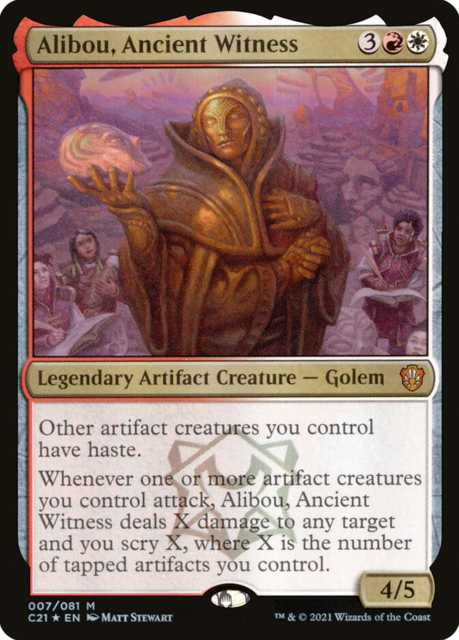
The theme back at the start of this series was that different kinds of flaws compromise the overall quality of a game to different extents. In that blog, I noted that certain negatives are worse than others because some exist in addition to a game's positives, and some cancel out the positives. MTG can be fantastic at setting up interesting strategic problems for its players because of elements like mana costs, the interchangeability of powers, and the impracticality of brute-forcing past blockers. But the game's weaknesses, such as the randomness of the deck, the excessive power of some cards, and your inability to counteract devastating attacks, are not just some issues with Magic. They exist in contention to the pluses that can make it worth playing.
As we round this series out, I want to develop that idea by stating that some problems in games are not equal to others because some problems stack with others rather than drifting alongside them. Magic's mistakes line up like prisms, amplifying a beam of badness. If a match had gross imbalances or hopelessly distracted players, it would merely be abysmal. Seeking a more sewer-like depth, Magic has it so that you have significant odds of not drawing cards you can play, and if you do, chance is a mammoth factor in deciding how applicable those cards are to the current battle. Meanwhile, you're often left in the dark as to whether your deck will counter your opponent's or not, and the cards they draw are also randomised. If you're playing Arena, the player-matching system further leaves difficulty up to the universe's slot machine.
When your opponent plays cards against you, they can devastate just because Magic has failed to keep a clamp on the equity between spells. If they manage to wreck you with their spellcrafting, you may well not be able to see it coming or counteract it. Acting in the first place can be hard to impossible because you can burn through your whole hand without replenishing it or have your cards on the field immobilised, again, without recourse. And even losing can take a lifetime when fields can become crowded, and some Arena players couldn't care less about leeching your free time.
Having told you how to hate Magic: The Gathering, I now want to give you a reason to still love Magic: while all these fractures might appear in any match, there's a fair chance they might not. You have better odds of ending up out of a mana drought than in one. If your opponent plays a healing deck that could leave you on a damage treadmill, maybe you'll happen to have the poison deck that will wreck them. Many opponents will concentrate on the game and want it to move as briskly as you do. We talk a lot about "good games" and "bad games", but a lot of games are engrossing in some moments but not others. The game you're playing is one determinant of the quality of your experience, but another is what you're doing in that game. Magic: The Gathering has perhaps the widest swing I've ever seen between brilliant and atrocious play. Yet, for all its pretensions to being a strategy title, whether you get the fantastic or the awful Magic is up to the luck of the draw. Thanks for reading.
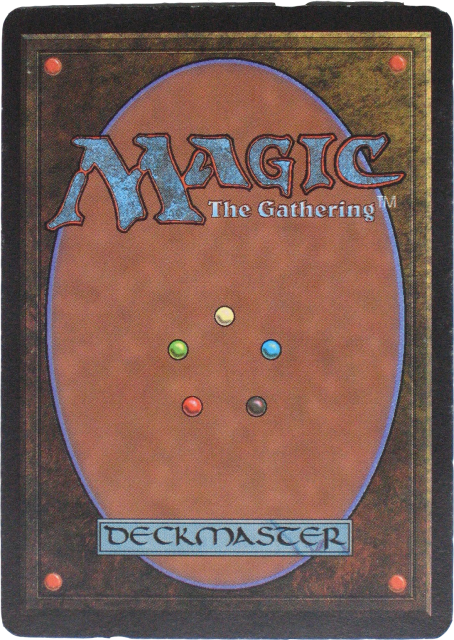
Log in to comment